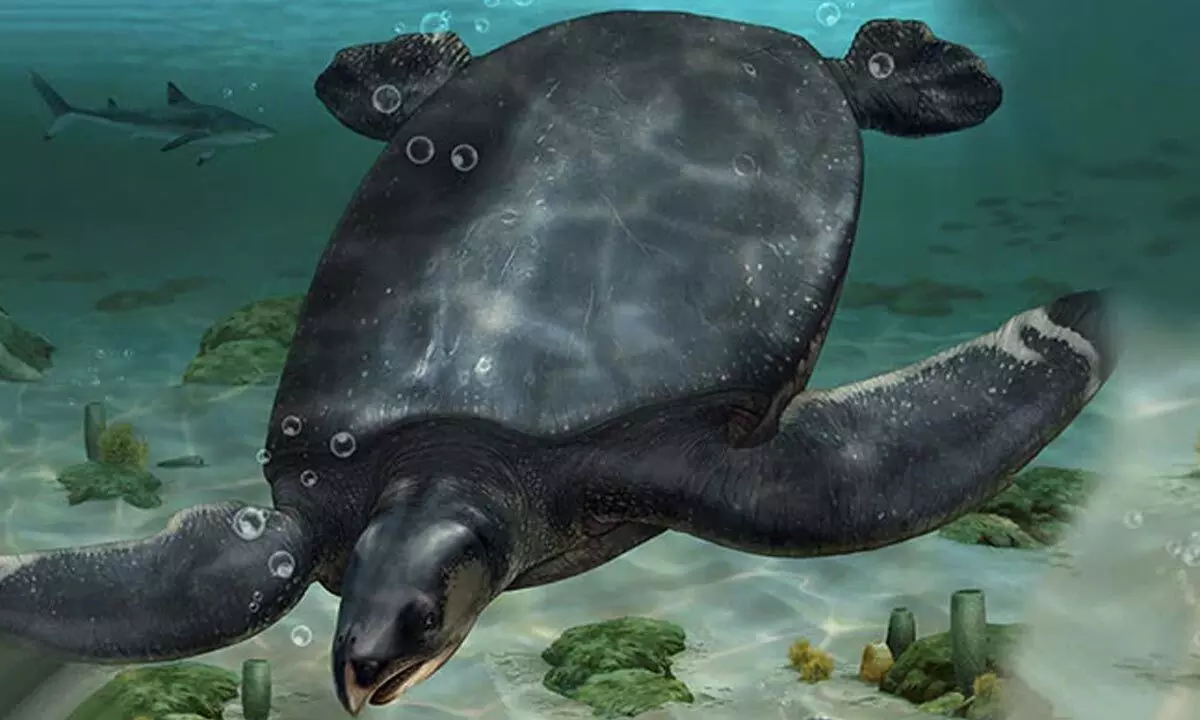Fossils Of A Car-Sized Turtle Found In Spain

It is Europe's biggest-known turtle, scientists said. (Photo/ndtv)
- The leatherback turtle, which can grow to a length of 7 feet and is known for its lengthy sea migrations, was dwarfed by this creature.
- Researchers explained Leviathanochelys aenigmatica, a turtle whose remains were found in northeastern Spain.
One of the largest turtles ever recorded, a reptile the size of a small car, braved perilous waters while cruising the subtropical seas that washed the beaches of the archipelago that made up Europe 83 million years ago. The leatherback turtle, which can grow to a length of 7 feet and is known for its lengthy sea migrations, was dwarfed by this creature. The largest turtle known, Archelon, which lived around 70 million years ago and grew to a length of about 15 feet, was almost equaled by Leviathanochelys.
Researchers explained Leviathanochelys aenigmatica, a turtle whose remains were found in northeastern Spain. It was about 12 feet long, weighed just under two tonnes, and lived during the Cretaceous Period, the last stage of the age of dinosaurs. The largest-known turtle in Europe is this one.
Given the dangerous traffic in the ancient Tethys Sea, Leviathanochelys was glad to be the size of a car. The greatest predators were enormous marine reptiles known as mosasaurs, some of which reached lengths of more than 50 feet. Along with a variety of sharks and rays, plesiosaurs, long-necked fish-eating marine reptiles, were also present.
Protostega and Stupendemys, two more enormous turtles from Earth's past, both measured about 13 feet (4 metres) long. Protostega, a Cretaceous sea turtle that lived around 85 million years ago, resided in the sizable inland sea that at the time divided North America in two, just like its later relative Archelon. Around 7–13 million years ago, during the Miocene Epoch, Stupendemys prowled the lakes and rivers of northern South America.
Furthermore, the Leviathanochelys remnants were discovered by archaeologists close to Coll de Nargó in Catalonia's Alt Urgell district after a hiker in the Southern Pyrenees Mountains noticed fossils sticking out of the ground there.
Next Story











